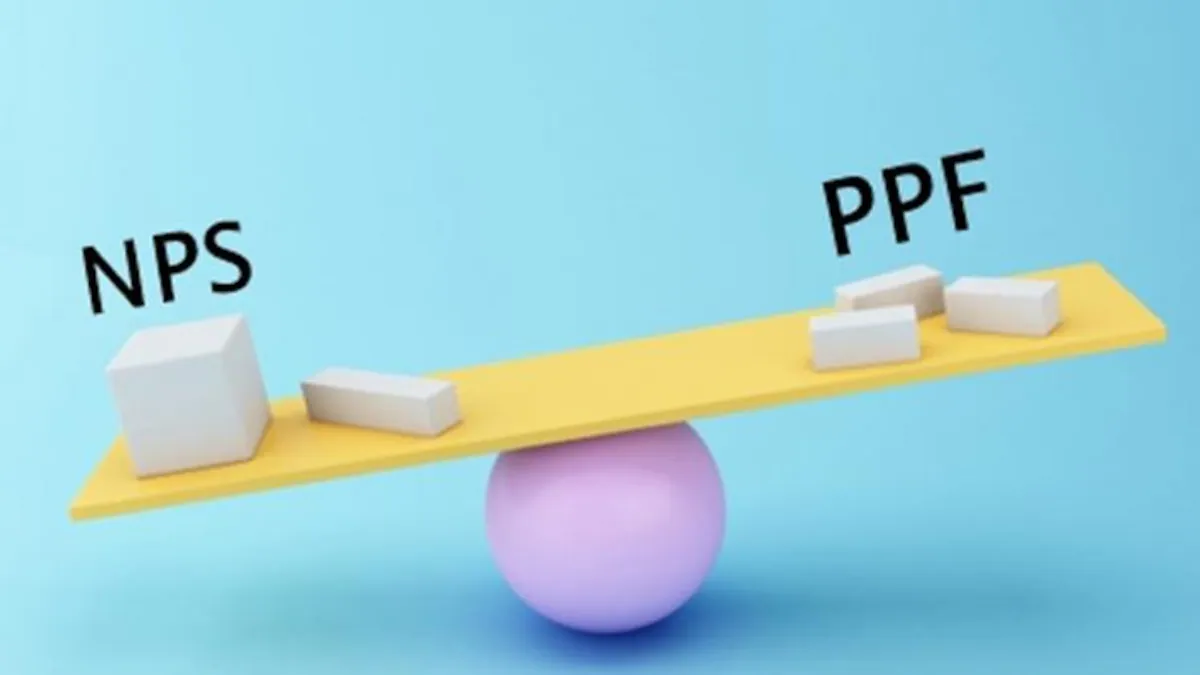India is one of the fastest-growing countries in the world and this means that India has enormous potential for trade. In order to encourage trade, the government launched a new scheme - Export Promotion Capital Goods scheme - which allows import export businesses like yours to import capital goods without any high custom duty charge.
What Are Capital Goods?
Capital goods are products that are used in the production of other products. They are durable and have a longer lifespan than other products. Capital goods can also be used for research and development. The government has introduced the EPCG scheme to help companies export their capital goods.
How Do We Classify the Various Classification of Capital Goods
The Indian government has introduced the Export Promotion Capital Goods Scheme to promote Exports of Capital Goods. The scheme covers a wide range of products, including aircraft, automobiles, telecommunications equipment, pharmaceuticals and defense equipment. Under the EPCG scheme, eligible exporters can receive up to 100% credit assistance for the purchase of capital goods. The assistance can be provided in the form of loans, insurance or grants. The total budget for the scheme is ₹ 50,000 crore over seven years. The eligibility criteria under the scheme are broad and include products that are likely to generate export revenue. Products that are not likely to generate export revenue, such as infrastructure projects, are not eligible for assistance under the scheme. The scheme is an important part of India’s strategy to support exports of high-value capital goods. The scheme will help reduce the cost of investment in these products and make them more competitive on global markets.
Check Here to More about: https://www.dgft.gov.in/CP/?opt=epcg
What Is the Export Promotion Capital Goods Scheme?
The Export Promotion Capital Goods (EPCG) scheme stands as a governmental initiative strategically crafted to boost exports, extending incentives and financial assistance to exporters. This scheme holds significant appeal for businesses actively participating in the export sector, offering them a range of substantial benefits.
To partake in the advantages of the EPCG scheme, exporters must undergo a structured registration procedure with Customs. This involves submitting an application to the Directorate General of Foreign Trade (DGFT) along with the requisite documents. Upon approval, exporters gain the privilege of importing capital goods sans the burden of paying customs duty, contingent upon fulfilling predetermined export obligations within the specified timeframe. The EPCG scheme thus serves as a catalyst for enhancing the competitiveness and growth of export-oriented businesses.
How Does It Work?
The Indian government has introduced the Export Promotion Capital Goods Scheme . This scheme will provide Funding for the purchase of capital goods used in exports. The aim of the scheme is to promote exports and create jobs in the country. The scheme is open to projects that are registered with the Export Promotion Council of India. Projects that qualify for funding must have a set minimum investment and a duration of two years.Funding can be received in two ways: through a loan from a commercial financial institution or through a grant from the government. There are several benefits to registering for the scheme. First, registered projects are eligible for government grants and loans that are not available to other businesses. Second, registered projects can receive tax breaks and promotional assistance from the government. Third, registered projects can access export credit guarantees from international financial institutions. In order to apply for funding under the scheme , project managers must submit an application form and detailed project proposal. The application form can be found online. The proposal should include information on the project goals, timeline, financials, and business plan.
EPCG Scheme (Export Promotion Capital Goods Scheme):
The Export Promotion Capital Goods (EPCG) Scheme is an initiative by the Indian government to promote and facilitate the export of goods from India. It allows eligible exporters to import capital goods at concessional or zero customs duty, with the condition that they achieve a specific export obligation within a certain period.
Capital Goods Allowed Under EPCG Scheme:
The EPCG Scheme permits the import of various capital goods, including machinery, equipment, components, and technology required for the production of goods for export.
What Are the Benefits of the EPCG Scheme?
The Director General of Foreign Trade (DGFT) introduced the EPCG scheme, a boon for exporters, aimed at fostering exports through incentives and financial support. This scheme unfolds various advantages:
Duty-Free Imports:
The EPCG Scheme enables duty-free imports of products, contingent upon fulfilling an export obligation equivalent to six times the saved duty amount on capital goods within a span of six years. This serves as a powerful incentive for exporters to actively contribute to the growth of the nation’s exports.
Financial Assistance:
Exporters benefit from financial assistance as the EPCG license eliminates import charges. This reduction in financial burden empowers exporters to invest more efficiently in their operations and further stimulates export activities.
Flexible Compliance Requirements:
The compliance requirements under the EPCG scheme are adaptable. Exporters dealing with shipments under ₹1 crore are obliged to furnish a bank or bond guarantee. On the other hand, exporters surpassing the ₹1 crore export threshold are exempt from bank guarantee obligations, as the customs port assumes this responsibility.
Streamlined Registration Process:
Once an exporter secures the EPCG license, they must proceed to register it at the port of entry. This crucial step ensures eligibility for duty waivers when submitting the Bill of Entry, streamlining the import process and facilitating seamless operations.
Encouraging Fast-Track Enterprise:
The EPCG scheme actively promotes a fast-track enterprise culture by encouraging and facilitating swift export processes. This not only benefits individual exporters but contributes to the overall dynamism of the export ecosystem, fostering economic growth and global trade partnerships.
EPCG License:
An EPCG license is a document issued by the Directorate General of Foreign Trade (DGFT) that authorizes an exporter to import capital goods under the EPCG Scheme. This license specifies the export obligation and other terms and conditions.
What is the Function of EPCG?
The Export Promotion Capital Goods (EPCG) Scheme is a pivotal government initiative, specifically tailored for machinery, its components, and products integral to exporters’ manufacturing processes. Primarily catering to manufacturer exporters, this scheme extends vital financial assistance for the import of machinery goods.
At its core, the EPCG scheme operates with a central aim — to bolster the production of high-quality goods within India and facilitate their global distribution. By incentivising the import of essential machinery and related components, the scheme plays a crucial role in expediting the growth of the national economy. By supporting manufacturers with financial aid, EPCG not only enhances the competitiveness of Indian goods but also contributes significantly to the overall economic development of the country. This strategic initiative underscores the government’s commitment to fostering a robust manufacturing ecosystem and fortifying India’s position in the global marketplace.
Documents Required for EPCG License:
To secure the Export Promotion Capital Goods (EPCG) license, you must compile a comprehensive set of documents, including:
- Import Export Code (IEC)
- Pan Card
- Proforma Invoice
- Digital signature
- GST Registration Certificate
- Excise Registration (if registered)
- Registration certificate from Tourism Department
- Brochure
- Registration cum Membership Certificate (RCMC)
- Self-Certified Original Copy of Certificate of Chartered Accountant
- Self-Certified Original Copy of Certificate of Chartered Engineer
Capital Goods Allowed Under the Scheme
Within this program, a person engaged in importing can bring in machinery goods, encompassing spare parts, dies, tools, jigs, moulds, and fixtures. Additionally, the scheme allows the importation of second-hand capital items, irrespective of their age.
Government Benefits for Exporters
The Indian government provides exporters with a range of advantages to bolster and foster the export sector. These perks encompass financial incentives, initiatives like the EPCG scheme, and simplified customs procedures aimed at expediting and facilitating export processes.
Export Obligation Under the EPCG Scheme
Under the EPCG scheme, the import of capital goods is contingent upon fulfilling an export obligation, amounting to six times the duty saved. This obligation must be met within six years from the issuance of the EPCG authorisation. Failure to meet this export commitment necessitates the payment of customs duties by the importer of the capital goods, along with the applicable interest.
Points to Remember:
- The benefits under the EPCG Scheme is subject to certain conditions and restrictions
- Exporters must maintain proper records and submit periodic reports to the DGFT
- The EPCG Scheme may be available for certain deemed exports as well
Historical Case on EPCG License:
There have been instances where companies have faced legal issues due to non-compliance with EPCG Scheme obligations. Such cases often involve disputes over meeting export obligations or irregularities in the utilization of imported capital goods. Here are some historical cases related to EPCG License:
A company was involved in the manufacturing of semi-combed hosiery yarn. The company acted in good faith and saved Rs. 1.38 crore in customs tax. However, it was found that the goods were actually not exported, and the company violated the terms of their EPCG license. The company pleaded guilty, and a hefty penalty was levied and due to non-compliance with the export obligation.
In another case, a company imported machinery/raw material worth Rs. 1 lakh under the EPCG Scheme. The company was required to fulfill an export obligation of Rs. 8 lakhs within 8 years of Authorization issue date. However, the company failed to fulfill the export obligation, and a hefty penalty had to be paid.
Conditions and Requirements of the EPCG Scheme
This scheme is designed to promote exports of capital goods, including machinery and equipment. To be eligible for the scheme, exporters must meet certain conditions, including having a valid export license and a registered company with minimum paid-up equity of ₹ 100 crores. In addition, exporters must certify that their exported capital goods will not be used for military purposes. The scheme offers a grant of up to ₹ 50 crore per project, contingent upon the successful completion of the exporting enterprise. The grant can be used to finance both domestic and foreign investment in the project. The scheme is open to all types of capital goods, including manufactured products and services.
How Does the EPCG Scheme Work?
Under the Export Promotion Capital Goods Scheme, the government offers tax holidays and other incentives to companies who invest in high-technology capital goods, such as machinery and equipment. This helps boost India’s export sector and create job opportunities in sectors such as manufacturing.
The scheme is open to companies that have an annual export turnover of ₹ 100 crore or more. Eligible companies can apply for a refund of 80% of the investment amount, plus a 15% interest subsidy.
Key Points of EPCG Scheme:
This scheme will provide funding worth up to ₹500 crore to companies that wish to export capital goods. Import duties on capital goods exported under this scheme will be waived for a period of five years. The scheme will be open to companies registered with the Department of Industrial Policy and Promotion (DIPP).Contact Vakilsearch today to know more about this scheme.
FAQs:
1. What is the EPCG scheme?
The EPCG Scheme is the Export Promotion Capital Goods Scheme, a government initiative in India that allows eligible exporters to import capital goods with concessional or zero customs duty, provided they fulfil a specific export obligation.
2. What is an EPCG license?
An EPCG license is a document issued by the DGFT, permitting exporters to import capital goods under the EPCG Scheme.
3. What is the zero duty EPCG scheme?
The zero-duty EPCG Scheme is a variant of EPCG where capital goods are imported with zero customs duty. Exporters must meet export obligations to avail of this benefit.
4. Who is eligible for EPCG?
Manufacturers, service providers and merchant exporters can be eligible for the EPCG Scheme.
5. Is EPCG scheme advisable?
Whether the EPCG Scheme is advisable depends on the nature of your business and export potential. This is because while it can provide cost benefits it also carries export obligations.
6. Can a new exporter avail the EPCG Scheme?
Yes, new exporters can avail of the EPCG Scheme, subject to meeting eligibility criteria and conditions.
What is the EO for EPCG scheme?
The EO (Export Obligation) for the EPCG (Export Promotion Capital Goods) scheme represents the commitment made by an entity to fulfil export targets within a specified period. It is a crucial element of the scheme, outlining the obligation for export performance to avail of duty benefits.
Is EPCG a government grant?
No, the EPCG (Export Promotion Capital Goods) scheme is not a government grant. It is a trade promotion scheme initiated by the government to encourage exports. Under EPCG, eligible entities can import capital goods at concessional duties, provided they fulfil export obligations within a stipulated time frame.
Who launched the EPCG scheme?
The EPCG scheme is launched and implemented by the government of a specific country to promote exports. In India, for example, the Directorate General of Foreign Trade (DGFT) administers the EPCG scheme, facilitating the import of capital goods for eligible exporters.
When was EPCG introduced?
The EPCG (Export Promotion Capital Goods) scheme was introduced as part of the government's trade promotion initiatives. The specific introduction dates may vary by country. In India, it has been in existence for several decades, evolving over time to align with changing economic scenarios and trade priorities.
What are the types of EPCG schemes?
The EPCG scheme is generally designed to facilitate the import of capital goods for exporters. Types of EPCG schemes may include those for specific sectors or industries, allowing for customised benefits based on the nature of exports. The scheme aims to enhance the competitiveness of export-oriented businesses.
Read more:










